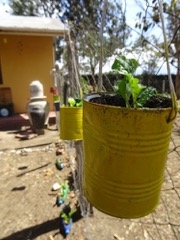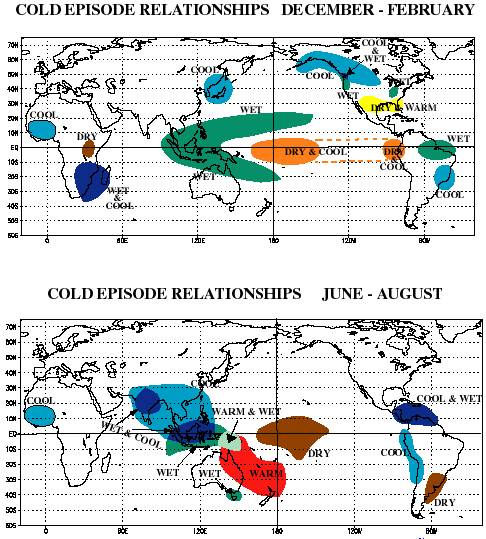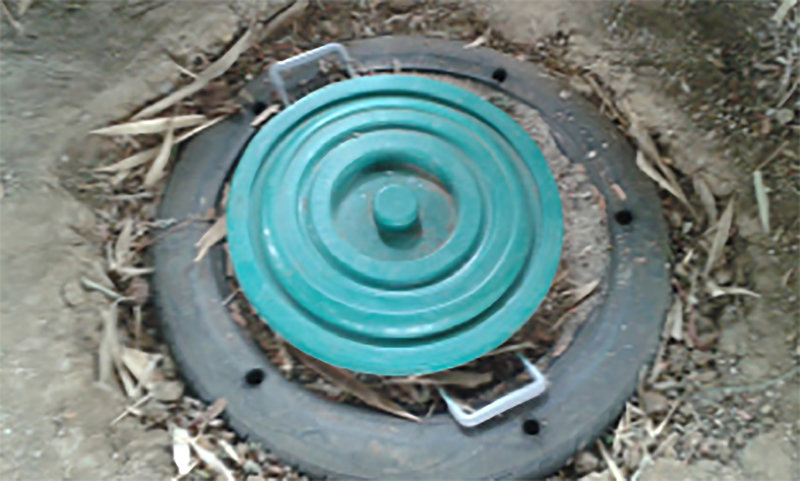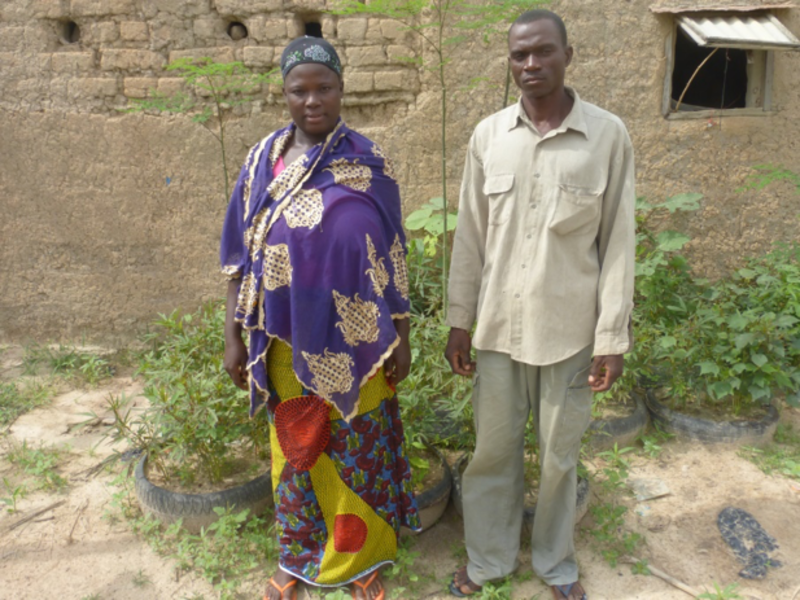ECHOcommunity ការធ្វើឱ្យទាន់សម័យ
Kitchen gardens and innovative kids - growing together at Plaster House 2016-12-06
This ECHOcommunity Update provided by ECHO East Africa intern Travis Silveus
Plaster House is a not-for-profit organization based in Arusha, Tanzania. Their aim is to provide a safe place for healing after surgery for children of all ages. At any one time you can find around one hundred kids boarding at the house waiting to go into surgery or recovering from operations. It’s common to find children with severe burns, club feet, cleft palates or missing limbs playing together in the yard. Safe spaces can be hard to find when so often village-life is based on living within the standard of normalcy, which too often includes appearances. Plaster House gives off a fragrance of acceptance and visitors can see a smiling community in the midst of such trying circumstances. Many times students can spend an indeterminate amount of time at the Plaster House depending on the severity of the surgery needed. Volunteers come and visit but oftentimes the older boys can be overlooked as they don’t quite fit into programs that are directed to young children. As a result, Plaster House nurse, Hannah , invited ECHO to come and design some educational opportunities for the youth. The goal was to construct some kitchen gardens and provide a mentorship between the boys and male role models.
Over the last several months, Venance Mollel, Adiveckson Mamkwe, and Travis Silveus and others (Elly Embowe, Hannah Hacker) have visited weekly. On the first visit, Venance explained that the purpose of ECHO was to encourage creativity with farmers to solve problems that they’re facing. Before we left, we asked the boys to be creative to make something new out of used water bottles. The following week, we were happy to find that the youth had made a number of things out of the bottles including several garden designs and a simple drip irrigation system. We took some photos and celebrated their creativity. The consecutive weeks we discussed sack gardens, tire gardens, medicinal uses of native plants and nutrition. The ECHO staff planted chaya and leaf cassava cuttings and explained the uses of the perennial greens and encouraged cooking staff to incorporate them into the diets. Along with the sweet potato greens from the sack garden, the amaranth and celery in the tire garden and the garlic to be planted in the keyhole garden, ECHO has worked to supplement the diets of the lodging students. ECHO was very pleased to host a group of youth from Plaster House. Most of the time, a trip off of the campus means going into surgery- so the teens were much relieved for a chance to explore and learn outside of the walls. The ECHO staff received the teens and we are looking forward to continue mentoring Victor, the gardener, as the on-site teacher to continue educating new groups of boys and girls hosted at Plaster House.
La Niña to affect small-scale agriculturalists 2016-12-01
According to the US National Weather Service, La Niña conditions are present and are slightly expected to last through the winter of 2016-17, likely affecting temperature and precipitation around the world. This follows a 2015-16 El Niño event that resulted in extreme drought conditions in numerous regions around the world, having affected more than 60 million people worldwide (World Health Organization).
The NASA Earth Observatory webpage describes La Niña impacts as causing “wetter than normal conditions west of the equatorial central Pacific over northern Australia and Indonesia during the northern hemisphere winter, and over the Philippines during the northern hemisphere summer. Wetter than normal conditions are also observed over southeastern Africa and northern Brazil, during the northern hemisphere winter season. During the northern hemisphere summer season, the Indian monsoon rainfall tends to be greater than normal, especially in northwest India. Drier than normal conditions are observed along the west coast of tropical South America, and at subtropical latitudes of North America (Gulf Coast) and South America (southern Brazil to central Argentina) during their respective winter seasons.”
Farmers and development workers are encouraged to make preparations for anticipated rainfall irregularities in their particular regions. The ECHO Best Practice Note No. 2, Agriculture in Times of Climate Change, recommends practices for smallholder farmers to cope with climate extremes.
Success stories from Sanekui, Mali 2016-11-15
Sanekui is a village in Mali where, a few days after its opening, ECHO's West African Regional Impact Center conducted its first training in 2014. During this training, the FFF and Moringa were The themes given to the church member. Two and a half years after this training, a follow-up team traveled to Sanekui to see the effects of the training. The testimonies and findings are very edifying and encouraging.
Indeed, the FFF technique was adopted by all the participants and especially by many people in the village and the neighboring villages which had not participated in the training, but who having seen the good harvests of the FFF fields went to those who received the training and learnt how to also do the same. Many people have seen their yields increased and their living conditions improved. Among these people, Pastor Silas Kéïta from Sanekui was able to buy a car to facilitate his professional and private journeys, thanks to the surplus of millet and cotton he sold.
EDN Issue 133 - Now Available 2016-11-08
In This Issue:
- Bamboo
- A "2:4:2" Maize/Legume Intercropping Pattern
- Paper Mulberry: A Complicated Agroforestry Resource
- Echoes from our Network: Stinging chaya, fruits for high rainfall areas and exotic leaf miner problem in Nigerian tomatoes
- Book Review: Handbook for Integrated Soil Fertility Management
- Website Review: Seed Saving Videos from the World Vegetable Center (AVRDC)
Bamboo
by Craig Bielema
Excerpt: Bamboo’s reputation is largely based upon intrinsic peculiarities of certain varieties. The plant can grow a meter a day and is the staple diet for giant pandas; though a grass, it can grow to 30 meters tall with hollow wooden stems which are stronger than steel; and bamboo has a reproductive cycle in which all plants of the same species flower and then die simultaneously…worldwide. These sound like qualities conjured up for a fantasy novel.
Though the aforementioned qualities are true for some varieties, bamboo exists with a wide array of sizes, shapes, and palatability, and with varied growth and reproductive patterns. With diverse characteristics comes diverse functionality; bamboo is commonly used as food, fodder, fiber, fencing, furniture, and construction timber, all without sacrificing the life of the plant! Bamboo has many impressive and amazing characteristics, but its most important quality is the impact that its use can have on the life of a smallholder family.
Download and Share ECHO Development Note #133
Haiti: Replanting after Hurricane Matthew 2016-10-26
As organizations are responding to Hurricane Matthew damage in Haiti and in other parts of the Caribbean, they are developing short, medium, and long term plans of how to respond. With much of the damage in Haiti occurring in rural communities, organizations are considering how to respond with seeds and trees so to help the agriculture sector rebound. In agriculture there are crops that produce in the short term (various vegetables, beans, etc.), medium term (bananas/plantains, yams, cassava, etc.) and long term (fruit/forestry trees) that can be part of the response planning. How to properly respond will depend on various factors such as access to land, available seeds/seedlings, time of year, available water (irrigation or rain fed), soil salinity (often an issue after storm events near the ocean), and cultural preferences.
ECHO has created a document of possible short season crops that have done well in various parts of Haiti or have potential to do quite well.
Disaster response in the Caribbean: Resources 2016-10-12
There are many ECHOcommunity members and organizations responding to the damage in the Caribbean caused by Hurricane Matthew. Networking with others involved in the relief effort is important in ensuring all effected communities are covered and that the duplication of effort is minimized.
Paul Rudenberg, a long time resident of Les Cayes, Haiti and an ECHO network member is managing the facebook page Hurricane Matthew Response. He is updating the page with relevant hurricane response information specific to Haiti as it comes available. We wanted to make those working in Haiti aware of this useful tool.
Additional resources available:
The World Food Programme has established a Logistics Cluster portal to coordinate efforts in Haiti
"To support the Haitian Government, WFP, as lead agency, aims to provide logistics coordination and information management support, as well as facilitating the handling of the incoming cargo.
With support from the Global Logistics Cluster in Rome and WFP’s Regional Bureau in Panama, a Logistics Response Team (LRT) has been deployed to establish a logistics coordination cell in Port-au-Prince...
ECHO also published in EDN122 Strategies to Help Prepare for and Respond to Disaster that is useful for those responding or considering how to respond. [ English / Spanish / French ]
"After initial relief efforts, the process of rebuilding must begin, as relief shifts into development.
"What factors should a local development worker be aware of when it comes to preparing for a disaster? And what interventions can be most helpful in the face of disaster? To gain some broadly-applicable insights, we contacted four people who have experience working with displaced and unsettled people, either after a natural disaster or post-conflict disasters...
The 2015 ECHO International Agriculture Conference featured a plenary presentation from Susan Stewart entitled From chaos to transformation: Leveraging the unexpected for positive community impact ( Video / Presentation )
"Are you someone who plans? Have you ever had your plans disrupted by the unexpected – farmer or family change, community change, government change, or disaster? How do you feel about change and disruption – is it a threat or an opportunity? Let’s explore together how disruption and even disaster can lead to positive change for farmers and communities. Let’s look together at possibilities for how you can engage in the face of disruption and leverage it for positive development.
The final resource is a link to the University of Florida / IFAS extension document, Preparing for and Recovering from Hurricane and Tropical Storm Damage to Tropical Fruit Groves in Florida.
"This document is helpful for those considering resetting fruit trees that where uprooted in the storm. This is lessons learned from recovery efforts after Hurricane Andrew in South Florida with fruit orchard and may apply to you.
The Cycle of Refinement: Seed Saving Idea Sharing 2016-09-26
Mike McMahon of the Charis Teaching Farm, recently contacted us about an experiment to try to adapt the CO2 seed saving technique presented in AN28 to verify if it could work for his context. Mike and his team conducted an experiment building and utilizing a root cellar at the Charis Farm in Tak province of western of Thailand. They stored seeds in jars and other containers and recorded temperatures under different regimes.
During the experiment, they recorded the temperature and found that dry season (March – April) represents the period of most extreme temperature fluctuation. In January and February, the temperatures reach down 10C, and below 0C in the mountains. Mike and his team wanted to see if the use of an in-ground storage container for seeds could help to reduce extreme temperature fluctuations, increasing seed viability and vigor.
ECHOcommunity Member Spotlight: Dr. Ann Wilke 2016-09-14
Dr. Wilkie, a professor at the University of Florida, is a specialist in microbial metabolism. Internationally recognized as an expert in biogas technology, she has also conducted research on the practical application of anaerobic digestion for waste treatment and renewable energy production.
We are pleased to annouce that Dr. Wilkie will be presenting plenary session at the ECHO International Agriculture Conference in November. This presentation will focus on biogas for smallholder farmers. Biogas is a renewal form of energy produced by the anaerobic digestion of materials such as livestock manure. An important by-product of biogas systems is a nutrient-rich digestate that can be used as a biofertilizer.
In addition to her plenary session on Thursday, Dr. Wilkie will be leading an optional post-conference workshop on Friday, November 18. This workshop will highlight biogas production and include practical demonstrations. On the same day, Brad Lancaster will also be hosting a post-conference workshop on water harvesting in dry climates.
You can sign up for these workshops online: Reserve My Post-Conference Workshop Spot
More Resources:
ECHO's 23rd annual International Agriculture Conference's plenary lineup includes speakers spanning a broad range of subjects. Included in the three-day conference are sessions on agroforestry (Dr. P.K. Nair), creation care (Scott Sabin) and several appropriate technology topics: greenhouse and aquaponics projects (Rex Barber), biochar (Dr. Roy Beckford), water harvesting (Brad Lancaster) and biogas systems (Dr. Ann Wilkie).
ECHO Tech Note #44: Methane Digesters has been recently updated. There are many designs for methane digesters ranging from large and complex to small and simple. This document covers two main types of digesters: batch digesters and flow-thru digesters; and two main types of gas collectors: tube collectors and floating collectors.
Voices From Our Network - West Africa 2016-08-31
"Before receiving training in ECHO, we had difficulty to buy fresh vegetables at certain times of the year; likewise, some vegetables and crops such as cowpea leaves, okra and sorrel are almost not found in the dry season. After training, I immediately decided to practice the art of tires gardens and this is how I planted sorrel, moringa, cowpea and okra I used a total of 10 tires. Today I am happy because these gardens have enabled me to achieve large cost savings and I do not buy all these condiments at the market, I have fresh vegetables at any time. With Moringa, we transform leaves in powder that we give to children and most of their illnesses disappeared; we are going less often to the clinic and we consume the leaves in the sauce. I also shared the benefits of training with a dozen of my friends and they continue to come in my home to collect moringa leaves that they administer to their children who also enjoy better health."
- Mrs. Siripé Korotimi: Siby, Burkina Faso
Clínica Verde - Holistic Wellness benefits from Bio-Intensive Gardening 2016-08-23
Clínica Verde is a global healthcare organization that designed and operates a prototype of a sustainably designed health hub in Nicaragua. Through medical services and frequent trainings they are taking a preventive approach to the wellbeing of their patients. Clinical care, nutrition, and health education are provided in an environment designed to support and improve health outcomes.








